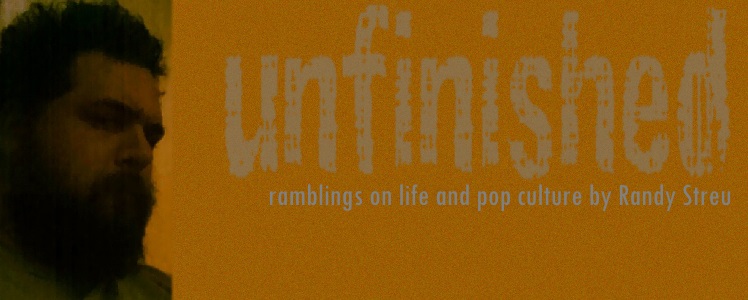 "On Being A Rat" is a tapestry of poetry and lyrical prose, masquerading as a collection of autobiographical essays. The collection is expressive and raw: not as an open wound, but instead like the flesh of an arm which has been scrubbed too clean. The result is fresh skin, peeled back and red, both stinging and refreshing in its exposure to the elements.
"On Being A Rat" is a tapestry of poetry and lyrical prose, masquerading as a collection of autobiographical essays. The collection is expressive and raw: not as an open wound, but instead like the flesh of an arm which has been scrubbed too clean. The result is fresh skin, peeled back and red, both stinging and refreshing in its exposure to the elements.As I read, I couldn't help but be reminded by Douglas Coupland's "Life After God" (in quality and tone, if not in style), with hints of Galway Kinell's "Book of Nightmares."
The author peels back the curtain of normal human restraint and, in response to the innocently (if disingenuously) asked, "how's it going" rips out her own wounded heart, places it grumpily in your hand, and says, "THAT. Is how I'm doing."
That's part 1: The Observations. In this section, Chila looks at her own struggles with trauma, with loss and doubt, and with friendship where it is needed most. The book would be worthwhile even if that was all there was to it. But then there are parts 2 and 3.
In the section section of "On Being A Rat," Chila explores writing, in the same vein as she explored her own psyche in part 1. She offers sage words of advice, sprinkled liberally throughout -- but mostly, it's an in-depth look at her own struggles and methods. From practical information like looking for people to do book notices for you, to less material narratives on taming her personal muse, this section isn't a how-to, but a glimpse into the journey of one writer's life in words.
Part 3, Nature Notes, is somehow misleading in its title. From the first essay in the section, we see that Chila is not writing purely about nature, but about what those elements of nature do to a person, spiritually and physiologically. In part, the essays are about remembrances, and in part odes to the wonder of the Earth. Each of the three pieces in part 3 are beautifully written, and in their own way a part of the whole that is "On Being a Rat."
Pick up the book -- and don't forget to keep turning those pages, past the acknowledgments, for her "Letters to Friends, on Writing." These are also instructive, in their own way.
In "On Being A Rat," Chila Woychik makes some assumptions, and takes some risks. She assumes, with this book, that, since you went to the trouble of picking it up, you are asking, "Hey, how's it going?" More brazen still, she is giving you the benefit of the doubt: she is assuming you actually meant it. Whether talking about doubt and trauma, or the writing spirit, or even nature, Chila takes the risk of baring her soul to any complete stranger who cares to look.
In short, any good author will inspire the creativity in others. As a writer, when I read a Stephen King, I am inspired to be more prolific.
When I read Chila Woychik, I want to be a better writer.
Buy this book at Amazon.

